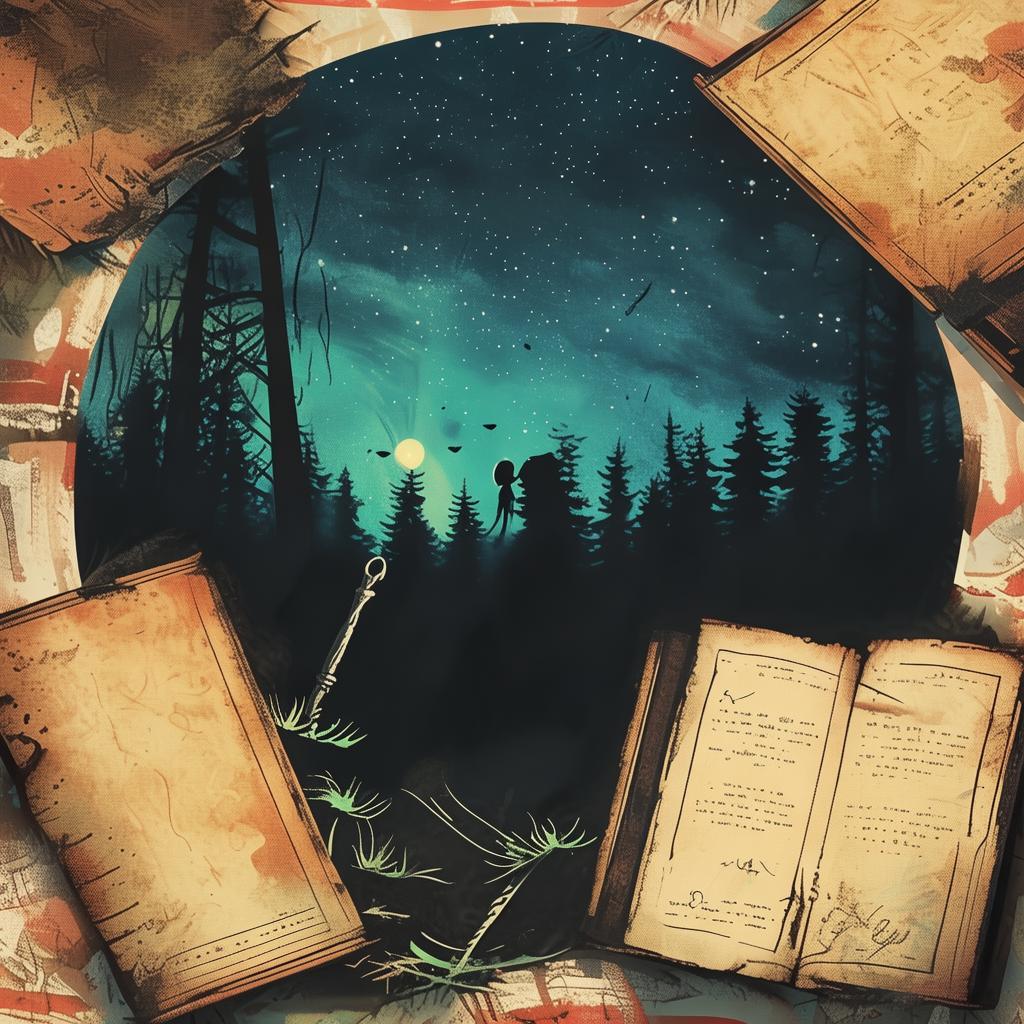The Resonance of the Dystopian Drummer
In the shadow of the sprawling city of Echoes, where the skyline was a jagged testament to humanity’s resilience, lived a young man named Aria. His name, a melody in itself, echoed through the streets as softly as the notes of the drums he played. Aria was a drummer, not just in the traditional sense but as the soul of the underground resistance, where the music was the weapon that fought the silence of tyranny.
The Swiftian Symphony, a series of compositions that captured the very essence of the oppressed, had become a legend among the people. It was said that those who heard it could feel the power of freedom in their veins. Aria had been one of the few who had mastered the art of playing this music, but his mastery went beyond mere technique—it was a testament to his growth as a person and a hero in a dystopian world.
The story began with Aria in the dimly lit underground club, The Whispering Thistle, where he performed his first solo piece. The audience, a hushed and expectant crowd, held their breath as the first notes of the Swiftian Symphony filled the room. The air shimmered with tension, the silence palpable, and the music seemed to dance with the very souls present.
“Do you hear it, the heartbeat of our revolution?” Aria whispered to the crowd, his eyes never leaving his drums. The music was more than just sound; it was a conversation with the heart, a dialogue with the future.
But Aria's journey had not always been this powerful. He was once just a child, playing drums in the silence of his home, dreaming of the day he could share his music with the world. His parents, ardent supporters of the resistance, had introduced him to the Swiftian Symphony when he was young, and their stories had ignited a fire in his soul.
One day, as he was practicing in the woods outside the city, a patrol of the oppressive regime caught him. They took him to the center, where the music was forbidden. Aria’s parents were executed that day, their final act to plant the seeds of resistance within their son's heart.
As the months passed, Aria was transformed by his experiences. The regime's silence became a cacophony of despair within him, and he channeled his pain and the music of the Swiftian Symphony into a drumming routine that became his way of defiance. Each beat was a scream against the oppressive silence.
The regime had no idea the power of their own fear. They had no idea that the drumming was a code, a message to the resistance, a call to arms. They had no idea that Aria was becoming a beacon of hope in the darkest times.
One evening, as Aria performed his routine in the square, he noticed something different. There were whispers among the crowd, murmurs that grew louder with each passing moment. The regime, too, sensed something was amiss and sent their agents to silence Aria.
The agents approached, their eyes cold as they pointed their guns. Aria stood firm, his hands ready to meet the drums that had become his voice. “No one will take this from me,” he thought as the first shot was fired.
But Aria was not alone. The music was his armor, the drums his shield. As the bullets whistled past him, the Swiftian Symphony thundered from his fingers, a symphony of resistance that turned the tide. The agents recoiled, their guns falling silent. The crowd erupted, their voices joining with Aria’s drums, a roar that shook the foundations of the regime.
The next morning, as the sun rose over the city, the people emerged from their homes to witness the hero they had once only heard of in whispers. Aria stood amidst them, his drumsticks resting on his shoulder, his eyes shining with the triumph of the spirit over oppression.

The Swiftian Symphony had not just grown within Aria; it had become a living force, a symphony that resonated in the hearts of the oppressed. And in the heart of the dystopian world, the music was the language of freedom, and the drummer was its hero.
The story of Aria and the Swiftian Symphony spread like wildfire, a testament to the power of music and the indomitable spirit of the human heart. It was a story that would be told and retold, a legend that would never fade.
The Resonance of the Dystopian Drummer was more than just a tale of one man’s growth—it was a symphony of hope in a world where the only noise was the silence of despair. It was a story that would inspire generations to stand up, to fight, and to believe in the power of their own voices.
✨ Original Statement ✨
All articles published on this website (including but not limited to text, images, videos, and other content) are original or authorized for reposting and are protected by relevant laws. Without the explicit written permission of this website, no individual or organization may copy, modify, repost, or use the content for commercial purposes.
If you need to quote or cooperate, please contact this site for authorization. We reserve the right to pursue legal responsibility for any unauthorized use.
Hereby declared.









